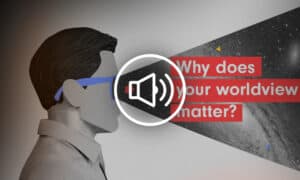If someone asked you, “What’s the purpose of education?” what would you say?
Christian Overman posed this important question in his blog. You may be surprised by his answer.
Christian is a life-long educator and has joined Darrow Miller and Scott Allen and others in compiling an a timely new book, Don’t Let Schooling Stand in the Way of Education. Stay tuned for the release date coming soon.
So, what did Christian say?
Not long ago, I was speaking to a group of Christian school teachers, and I posed “this question” to those in the room. But before anyone could reply, I answered my own query.
“The purpose of education is to equip the next generation to govern well over this physical, material world.”
You could have heard a pin drop. I paused to let the weight of my answer sink in.
Someone broke the silence by asking, “Would you mind repeating that?”
After repeating it, I asked the group if anyone had told them that before. No one had.
I have asked this question to Christian students, parents and teachers. So far, not a single person has responded by saying, “The purpose of education is to equip the next generation to govern well over this physical, material world.”
Why?
My guess is, the answer is too “earthy” for most Christians’ sensibilities.
Yet, I contend that not seeing this as the purpose for education is why so many pastors don’t believe in Christian schools, why we lost the “culture war” in this country, and why so many young people are leaving the church. We lost the very meaning and purpose for living–and thus our purpose for learning.
Yes, education is for strengthening character. Yes, education is for practicing self-government under God. Yes, education is for developing one’s talents, gifts and abilities to their highest potential. Yes, education is for learning “good citizenship.” And it’s for getting a “good job,” too. But the bigger question is: to what end?
I believe the purpose of education must be seen in the context of our assigned role and function on Planet Earth. The role God had in mind for humans is no mystery. He stated it plainly in Genesis 1:26-28, Then God said, “Let us make man in our likeness and image, and let them rule…over all the earth …”
News flash! Humans were created to govern over this physical, material world! We were made to be Earth-Tenders! That’s our assigned role, whether Christians or not.
I believe this is the most under-valued, under-preached Truth in all of Scripture. Fulfilling our assigned role well [that is, fulfilling it in harmony with the Creator’s purposes and design] brings glory to God, and serves the common good.
Christian ended his blog there but had much more to say about this in an ebook he wrote entitled The Lost Purpose for Learning.
Following are some highlights from this book answering the question of the purpose of education. Enjoy and ponder!
One thing that is not often discussed, however, is God’s ongoing ownership of all things, even after the entrance of sin into the world. The significance of this cannot be overstated. That’s because if we get the issue of ownership wrong, it makes a huge difference in the way we view the world. My mentor, Dr. Albert E. Greene, Jr., touched upon this problem when he wrote: “There is a subtle derailment which often occurs in Christian thought at the point of the Fall. We tend to think that when man sinned, God simply relinquished the whole creation as a botched job and left Satan to do what he wanted with it. Nothing could be further from the truth.” (14)
The world and all it contains is as much God’s stuff after the Fall as it was before the Fall. The Fall did not change God’s ownership status. He not only made it all in the beginning and continues to hold it all together, he owns it all, and this has enormous ramifications for human beings. When we mow the lawn, were cutting his grass. When we pound a nail, it’s his metal were pounding. When we examine a drop of water under a microscope, it’s his creation we’re looking at. He is speaking to us through what we observe every day. (14)
Thought speaks to thought. And through his creation, the Creator speaks. Every day. Every hour. To all generations, in every part of the planet. As the psalmist wrote,
“The heavens declare the glory of God; the skies proclaim the work of his hands. Day after day they pour forth speech; night after night they reveal knowledge. They have no speech, they use no words; no sound is heard from them. Yet their voice goes out into all the earth, their words to the ends of the world.” (Psalm 19:1-4) (15)
In Genesis 1:26-28, we see exactly what God had in mind for human beings when he created Adam and Eve. Let me say that again, so you can savor the full weight of what Genesis 1:26-28 is actually telling us: We see the specific role and function God has in mind for humans when he created us. (16)
What purpose did he have in mind for us? What intention was behind his creation of human beings? Specifically, God had governance of his creation in mind, when he said:
“Let us make man in our image, according to our likeness; and let them have dominion … over all the earth …” [Emphasis added.] (16)
Albert Wolters, in his essay “The Foundational Command: ‘Subdue the Earth,’” says it is “almost impossible to overemphasize the importance of this first and fundamental command of God to humans.” Wolters calls it, “the first and fundamental law of history.” This first mention of purpose, which Wolters says “all subsequent revelation presupposes,” is often called, “the Cultural Mandate.” I simply call it, “the First Commission.” (17)
Wolters further notes: “man is to be fruitful in order to multiply, he must multiply in order to fill the earth, and he must fill the earth in order to subdue it.” And then he adds that we were created in God’s likeness and image in order that we may fulfiIl this command. (Psalm 115:16). (17)
Stop and think deeply about this. We were created to govern over the Blue Planet and everything in it. This includes water (both salty and fresh varieties), air, electricity, sound waves, light, lead, uranium, silver, rubber, maple trees, money, fish, birds, cows, carrots, copper, fingers, thumbs, arms, feet, real estate, sweet potatoes, soybeans and every derivative thereof, including plastic and dyes [thank you, Dr. George Washington Carver], as well as digital images, smart phones, e-books, ships, cars, airplanes, glue, paper, antifreeze, pencils, ice cream and cake! (17)
God clearly created human beings with the intention that we govern over all he created and sustains (see Psalm 8). This necessitates economists, judges and legislators. (18)
As his designated Earth-Tenders, we fulfilI God’s intention for us to govern over all things who we mow the lawn, cut hair, fix automobiles, and negotiate the sale of a house. We fulfill God’s intention for us when we create good legislation, play a violin, or write a book, ruling well over words, sounds and ideas. lt is our great honor to govern over his stuff. (22)
I am not minimizing the importance of evangelism. But when we see the whole of God’s domain “in the light of his glory and grace,” the things of Earth do not grow “strangely dim.” Quite the opposite. (23)
When we view the Earth as “Gods good creation now broken,” and we understand our God-given role and alignment in it, then the Gospel truly is more than the Gospel of our Personal Salvation. lt is the Gospel of the Kingdom (the King’s domain), which, in fact, is the term used in the Bible to identify the Gospel itself. Yes, it is Good News that my soul is saved from hell. But that’s not all there is to the Good News. The Good News of the Kingdom is that Christ restores things as well as souls. What kind of “things?” Earth things! (23)
To reconcile all things? Business things? Artistic things? Civil things? Yes, “…that in all things he may have the preeminence…” God’s scope of reconciliation includes not only people but things. Things on earth! (23)
So, if anyone ever asks you “What is the purpose of education?” you’ll know the answer: So that we can achieve the job God gave us from the beginning: to govern well over this physical, material world.”





One Response
To be good and faithful servant?